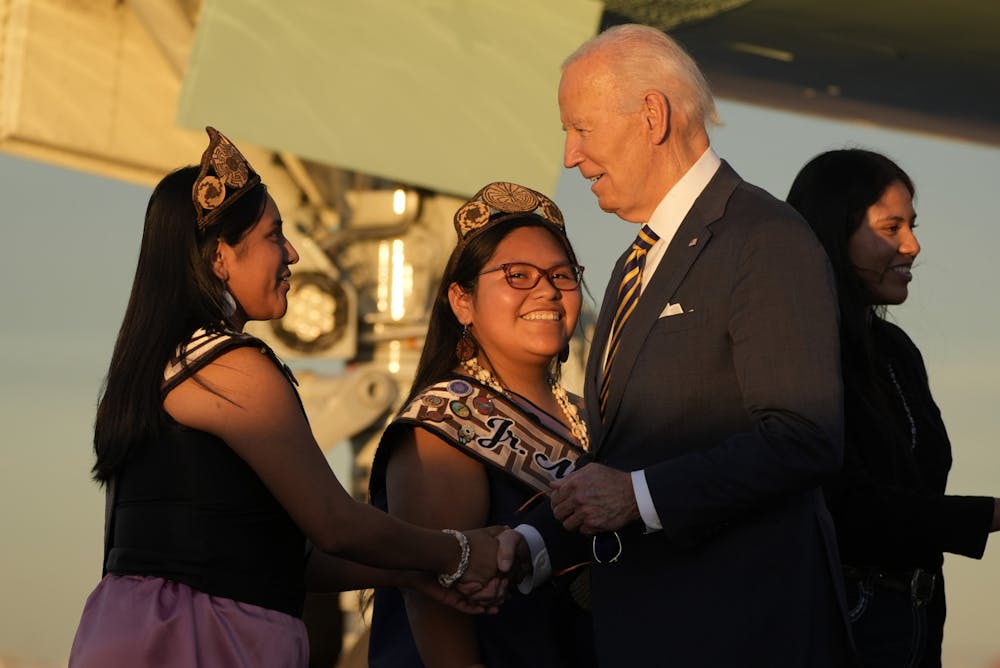President Joe Biden apologized Friday for the U.S. government’s role in establishing and supporting boarding schools that removed Indigenous children from their families and stripped them of their culture for over 150 years.
One of the boarding schools for Cherokee students — “Industrial Indian Boarding School” — was operated by Duke’s predecessor institution Trinity College for several years in the 1880s. The school was named in a 2022 investigative report from the Department of the Interior that identified over 400 such schools across the nation.
"I formally apologize as president of the United States of America for what we did," Biden said. "It's long overdue."
Biden made the announcement on tribal land at the Gila River Indian Reservation in the state of Arizona. It marked the first time a sitting U.S. president had visited Indian Country in 10 years.
Duke administration did not respond to The Chronicle's request for comment on the University’s history with Cherokee boarding schools in time for publication.
The Industrial Indian Boarding School was established under then-President Braxton Craven’s leadership for the purpose of westernizing Indigenous students. Twenty students from the eastern band of the Cherokee nation were enrolled and forced them to stop speaking their native language as part of the assimilation process.
Trinity received “$167 annually” from the federal government “for housing, clothing, boarding and teaching” each student, amounting to a profit of $212.75 by June 1884 — roughly $6,844 in today’s dollars.
After a series of leadership changes and ongoing financial challenges at the college, then-chairman of the faculty John Heitman — who “had always questioned the wisdom of retaining the Cherokees” — moved to abandon the school in 1885.
Duke is currently in the process of reckoning with its uncomfortable history.
In August 2021, the Native American/Indigenous Student Alliance, then called the Native American Student Alliance, wrote an open letter to University administration asking for a number of administrative changes, including the establishment of new academic programs and a cultural center, the adoption of a land acknowledgment and the recruitment and retention of more Native American students and faculty.
The University launched the Native American Studies Initiative in July 2023 and recently implemented a Cherokee language course series as first steps toward meeting these demands.
The federal government is also looking to improve its relationship with Native populations.
In advance of the Friday event, the White House touted Biden’s record on Indigenous issues, including “transformative investment” in “relationships with tribal Nations, advancing tribal sovereignty and self-determination, respecting Native cultures and protecting Indigenous sacred sites.”
Such investments have included $32 billion in the 2021 American Rescue Plan — “the largest direct federal investment in tribal Nations in history — $13 billion in the 2021 Infrastructure Investment and Jobs Act for infrastructure improvements in Indigenous communities and $700 million in the 2022 Inflation Reduction Act for promoting climate resilience on Native land.
“Darkness can hide much. It erases nothing. Some injustices are heinous and horrific. They can’t be buried,” Biden said Friday. “We must know the good, the bad [and] the truth. We do not erase history — we make history. We learn from history, and we remember so we can heal as a nation.”
Get The Chronicle straight to your inbox
Sign up for our weekly newsletter. Cancel at any time.

Zoe Kolenovsky is a Trinity junior and news editor of The Chronicle's 120th volume.

